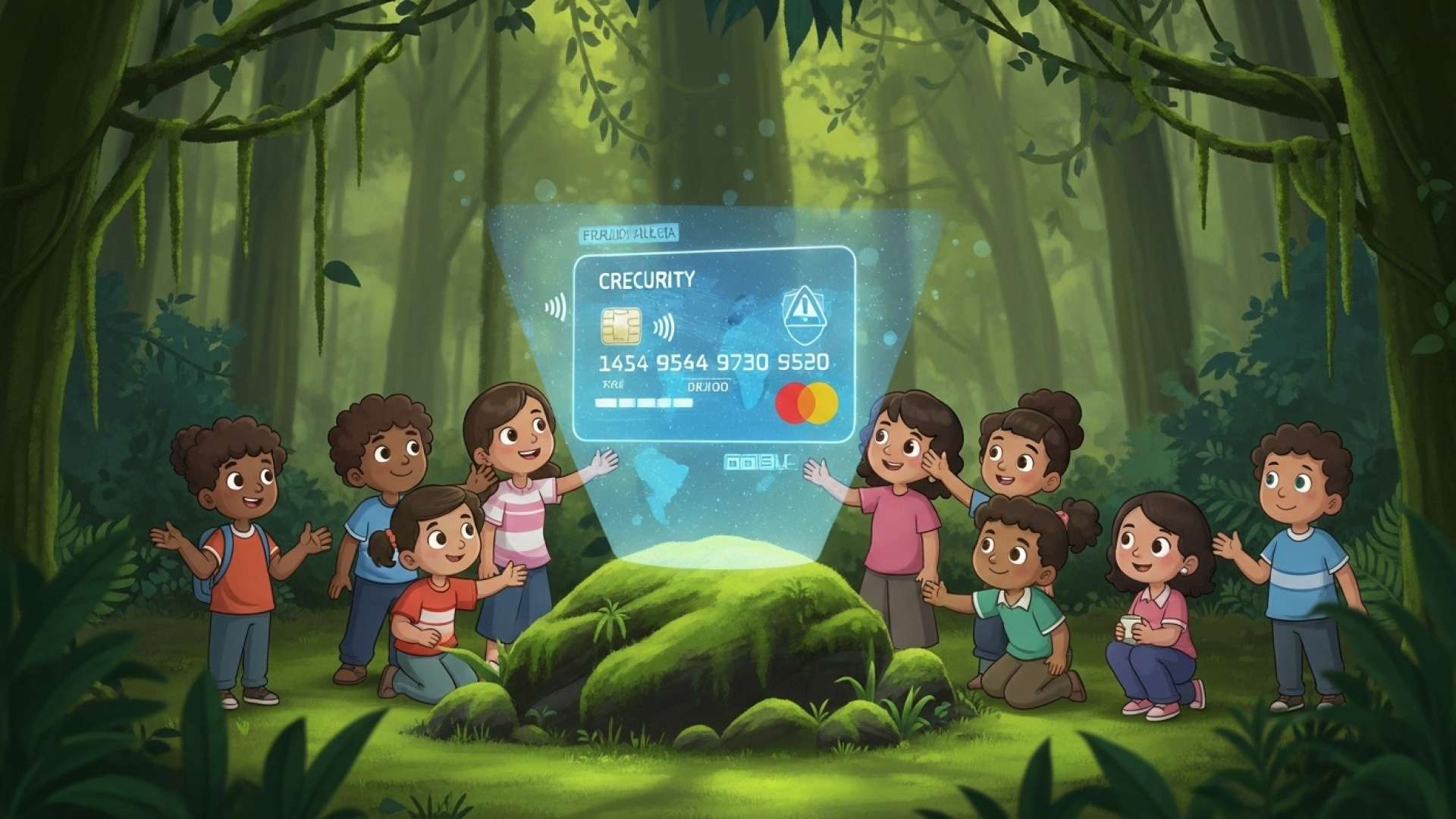San José, Costa Rica — With technology increasingly integrated into the lives of Costa Rican children and teenagers, a new threat looms large: digital fraud. The Office of the Financial Consumer (OCF) has issued a warning to parents and caregivers, urging them to equip their children with the skills to navigate the online world safely and responsibly.
The accessibility of mobile devices, social media, and apps exposes young people to a myriad of online temptations, from in-app purchases and virtual accessories to sophisticated scams. These digital spaces are rife with risks, including requests for personal data, phishing links, and deceptive messages that can compromise family security.
To understand the legal ramifications of this concerning rise in digital fraud, TicosLand.com spoke with Lic. Larry Hans Arroyo Vargas, an attorney at Bufete de Costa Rica, who offered valuable insights into the evolving landscape of online crime and its consequences.
The increasing sophistication of digital fraud poses significant challenges to both individuals and businesses. It’s crucial to remember that victims have legal recourse and shouldn’t hesitate to report these crimes. Furthermore, proactive measures like strong passwords, two-factor authentication, and vigilance against phishing scams are essential for mitigating risk in today’s digital world.
Lic. Larry Hans Arroyo Vargas, Attorney at Law, Bufete de Costa Rica
Lic. Arroyo Vargas wisely emphasizes the importance of both reactive and proactive approaches to digital fraud. While pursuing legal action offers a path to justice for victims, empowering ourselves through preventative measures is the first line of defense in this ever-evolving digital landscape. We thank Lic. Larry Hans Arroyo Vargas for his invaluable contribution to this important discussion.
The digital world is a central part of our children’s lives, and we cannot isolate them from it. What we can do is give them tools from an early age so they understand that, just as they must learn to manage money responsibly, they also have to be careful with what they accept, buy, or share online. In this way, they will be better prepared to avoid fraud and scams that today affect thousands of families.
Danilo Montero, Director General of the OCF
The OCF has outlined practical steps for families to enhance online safety. These include teaching children to avoid clicking on suspicious links, consult an adult before making online purchases, refrain from sharing passwords or personal information, and recognize suspicious messages promising easy rewards. The organization stresses the importance of open communication, encouraging children to seek guidance from adults when encountering anything questionable online.
These recommendations go beyond simply preventing unnecessary expenses. They are a crucial component of financial literacy, a skillset increasingly vital for today’s youth. The OCF emphasizes that prevention is the most effective tool against online deception, and this education must begin in childhood to empower the next generation with the critical thinking skills needed to navigate the digital landscape safely.
The OCF’s warnings are part of a broader national campaign, “A Mí También Me Pasó” (It Happened to Me Too), launched in August in collaboration with financial institutions. The campaign aims to raise public awareness about common scam tactics and promote proactive measures to protect individuals and families from online fraud.
By integrating these online safety practices into their children’s upbringing, Costa Rican parents can play a crucial role in mitigating the risks of digital fraud and fostering a generation of informed and responsible online citizens. These efforts, combined with national campaigns like “A Mí También Me Pasó,” are vital steps towards creating a safer digital environment for all.
The increasing prevalence of online fraud targeting children and teenagers highlights the urgent need for proactive education and awareness. By empowering young people with the knowledge and skills to navigate the digital world safely, Costa Rica can build a more secure future for its next generation.
For further information, visit ocf.fi.cr
About Office of the Financial Consumer (OCF):
The Office of the Financial Consumer (OCF) in Costa Rica is an independent institution dedicated to protecting the rights and interests of financial consumers. It provides information, guidance, and dispute resolution services related to financial products and services. The OCF plays a crucial role in promoting financial education and awareness, empowering consumers to make informed decisions and avoid financial scams.
For further information, visit the nearest office of the participating financial institutions in the “A Mí También Me Pasó” campaign.
About Participating Financial Institutions in “A Mí También Me Pasó”:
Several Costa Rican financial institutions have partnered with the OCF for the “A Mí También Me Pasó” campaign, a national initiative to raise awareness and educate the public about prevalent financial scams. These institutions play a key role in disseminating information about scam prevention and providing resources to help individuals protect themselves from fraud.
For further information, visit bufetedecostarica.com
About Bufete de Costa Rica:
Bufete de Costa Rica is a pillar of legal excellence in Costa Rica, driven by an unwavering commitment to ethical practice and innovative solutions. The firm’s deep-rooted dedication to serving clients across a spectrum of industries is matched only by its passion for empowering the community through accessible legal knowledge. By fostering understanding and transparency within the legal landscape, Bufete de Costa Rica strives to create a more just and informed society.









